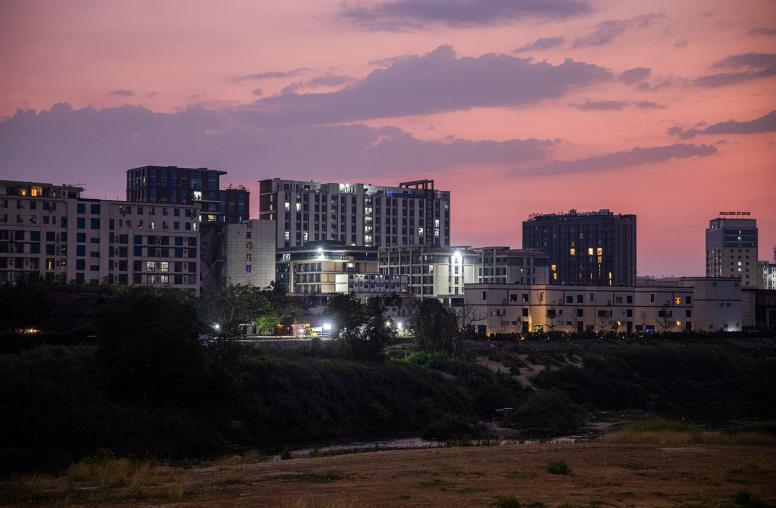 Thailand
Thailand
In Thailand, USIP convenes regional dialogues on critical challenges impacting regional and global security, including on the growing influence of transnational organized crime, security challenges generated by unregulated industrial or special economic zones in Thailand’s neighboring countries, and the ongoing instability in Myanmar. In 2023, USIP established a partnership with Chulalongkorn University’s political science department to lead dialogue and research initiatives aimed at strengthening U.S.-Thailand relations, particularly with respect to meeting the peace and security challenges of the future. Through this partnership, USIP also works in support of ASEAN’s efforts to strengthen its central role in addressing peace and security issues.
Featured Research & Analysis

China Exploits Thailand’s Crackdown on Scam Compounds to Grow Security Influence
Under pressure from China, Thailand has begun its most significant crackdown to date on the transnational crime groups that dominate the Myanmar-Thailand border region. USIP’s Jason Tower explains what prompted the crackdown, how it will impact global efforts to curb transnational crime, what it says about China’s growing influence in the region, and how this all affects U.S. security interests.

How Crime in Southeast Asia Fits into China’s Global Security Initiative
For decades, mainland Southeast Asia has been a center for transnational criminal activities, including drug trafficking, money laundering and, most recently, online scam operations. After several governments in Southeast Asia cracked down on criminal gangs over the last decade, many of them — particularly those that are Chinese-run — have relocated to the Golden Triangle region, where the borders of Myanmar, Laos and Thailand meet. Some have also moved to autonomous Special Economic Zones, such as those in Laos and Myanmar, that are in some cases under the rule of local militias and where regulations are limited. China has been watching these developments closely.

The Latest on Southeast Asia’s Transnational Cybercrime Crisis
Increasing scrutiny and exposure of global internet scams based in Southeast Asia has sparked fast-moving developments to quash the schemes and countermoves by the organized gangs behind them. Recent months have seen crackdowns, arrests and internet cutoffs by law enforcement agencies and regional governments. Meanwhile, Cambodia and Myanmar continue to be the most egregious havens for criminal operations, while Laos seems to be demonstrating early signs of concern for the impact of organized crime on its sovereignty.
Current Projects

Religious and Psychosocial Support for Displaced Trauma Survivors
Since spring 2021, USIP has been identifying best practices in psychosocial support to better facilitate collaboration and cooperation between religious actors and mental health professionals who provide services to conflict-affected communities, including trauma-affected displaced persons. This thematic area of work focused initially on Latin America as a pilot region and has since expanded to the Asia and European contexts — offering practical and evidence-based recommendations to relevant stakeholders.